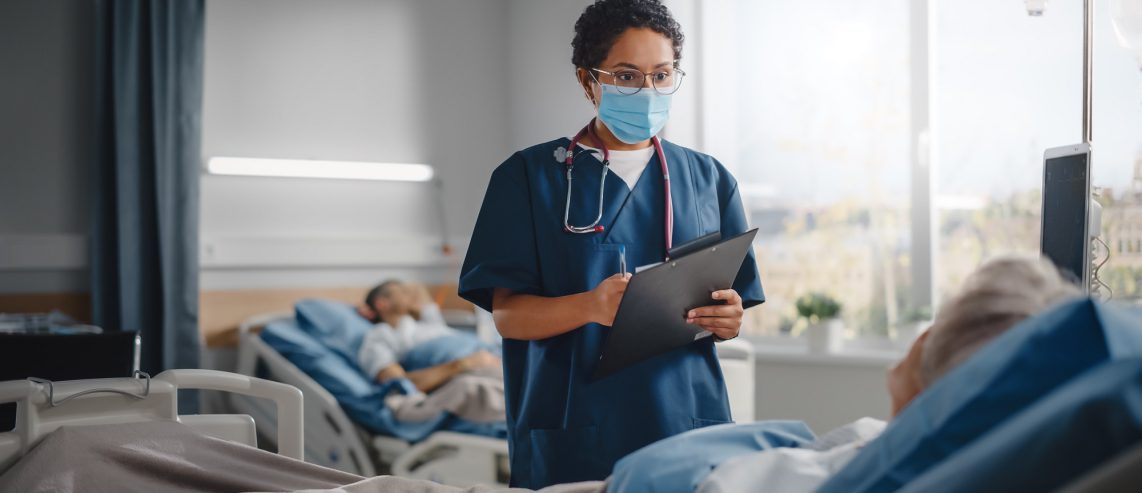Surgical teams do everything they can to keep patients safe during and after surgery. But sometimes, patients can develop a postsurgical infection. These are called surgical site infections (SSIs), which means there is an infection in the surgical wound.
About 2% to 5% of surgical patients in the U.S. may develop an SSI. This can mean extra days in the hospital and other complications.
Never Miss a Beat!
Subscribe to Our HealthBeat Newsletter!
Thank you for subscribing!
You can now select the specific newsletters you'd like to receive.
You are already subscribed.
Subscribe to more newsletters in our email preference center.
Sorry, an error occurred. Please try again later.
Get Healthy Tips Sent to Your Phone!
What Causes Surgical Site Infections?
Your skin is your body’s natural defense against germs that live outside of your body. Whenever you have an incision (a cut) to your skin, there’s a potential chance for germs to get inside your body. These germs can exist naturally on your skin, but can also come from the environment—during surgery, these germs can come from the air, from surgical instruments (even sterilized instruments), or from the people in the surgical room.
In some instances, natural bacteria and fungi that live inside your own body can also cause an infection after surgery. People who smoke, have diabetes, or have problems with their immune system are at higher risk for this. Surgeries that last longer than two hours also increase the infection risk.
Some SSIs only involve the skin around the incision. Others involve the organs or materials that you may have had placed into your body during the surgery. These infections can be more serious.
Most SSIs happen within 30 days of surgery. Your care team will give you detailed instructions about wound care and when to call the doctor. A few classic signs of a surgical wound infection include:
- Fever and chills.
- Redness around the surgical wound.
- A surgical wound that remains sore or hot to the touch.
- The presence of pus or increased drainage of any kind, sometimes with a bad smell, coming from the surgical wound site.
We treat most postsurgical infections with antibiotics. But sometimes, for severe infections, patients may need another surgery.
Preventing Surgical Site Infections
As many as 60% of SSIs are preventable. Everyone — including the surgical care team, the patient, and even the patient’s family — has a role to play in preventing these infections.
How Doctors Reduce Surgical Site Infection Risks
UPMC has a strong infection control program. We know that handwashing is one of the most basic measures that prevents infections. We have prioritized a system-wide handwashing observation protocol which is in place for all of our health care workers, to ensure that are all of them are following appropriate handwashing and hygiene protocols.
All hospitals must educate staff members about best practices for washing hands. This means using an antiseptic soap (which kills bacteria and other germs) to clean hands and arms (up to the elbows) just before surgery.
All clinicians and staff involved in a surgical procedure wear hair covers, surgical gowns, masks, and gloves during the surgery to reduce the spread of infection.
As a patient, you may also receive antibiotics before the surgery starts in order to further reduce the risk for developing an infection. Your team will also clean your skin where the incision will be using a special germ-killing soap.
After surgery, staff should clean their hands with soap and water before and after caring for each patient. They may also use an alcohol-based hand sanitizer.
How Patients Can Decrease Their Surgical Site Infection Risk
Some steps patients and their loved ones can take include:
- Quit smoking. Smoking increases your risk of infection after surgery. It also slows the healing process and is linked to blood clots in legs and lungs. UPMC can help you quit smoking.
- Communicate about your health. Some conditions, like diabetes, can increase your risk for SSI. Make sure you and your medical care team have a recovery plan in place before surgery.
- Follow pre-surgery instructions. Your doctor may give you instructions for cleaning your skin before surgery, including using a specialized antiseptic soap. Be sure to follow the instructions provided to you by your health care provider about not applying lotion, deodorant, or other substances to your skin before your surgical procedure.
- Avoid shaving before surgery. Shaving ahead of time can increase your risk of infection because it can cause micro-tears in the skin.
- Be vigilant about handwashing. After surgery, always wash your hands when caring for your wound and keep your nails short and clean. Ask anyone who visits to wash their hands as well. Don’t let anyone touch your incision unless it’s an established caregiver who knows how to properly care for your wound.
- Make sure you understand discharge instructions. Your doctor will give you specific instructions about when you can get your incision wet and how to care for it. Ask questions to clarify whatever you don’t fully understand. You should always know who to contact with questions or problems.
Sources
About UPMC
Headquartered in Pittsburgh, UPMC is a world-renowned health care provider and insurer. We operate 40 hospitals and 800 doctors’ offices and outpatient centers, with locations throughout Pennsylvania, Maryland, New York, West Virginia, and internationally. We employ 4,900 physicians, and we are leaders in clinical care, groundbreaking research, and treatment breakthroughs. U.S. News & World Report consistently ranks UPMC Presbyterian Shadyside as one of the nation’s best hospitals in many specialties and ranks UPMC Children’s Hospital of Pittsburgh on its Honor Roll of America’s Best Children’s Hospitals. We are dedicated to providing Life Changing Medicine to our communities.
